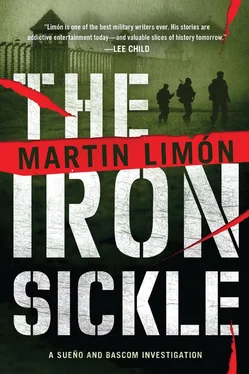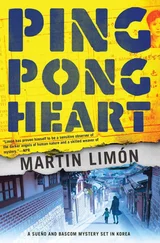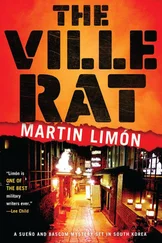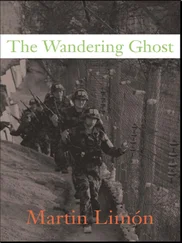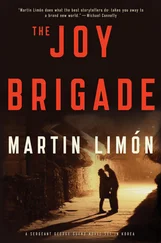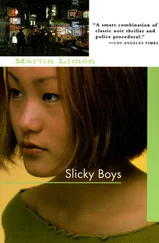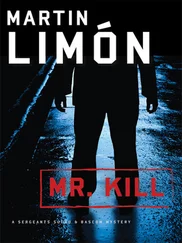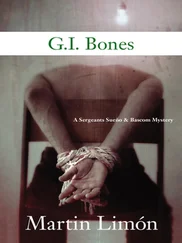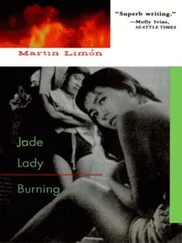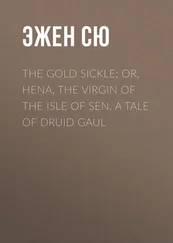Martin Limon - The Iron Sickle
Здесь есть возможность читать онлайн «Martin Limon - The Iron Sickle» весь текст электронной книги совершенно бесплатно (целиком полную версию без сокращений). В некоторых случаях можно слушать аудио, скачать через торрент в формате fb2 и присутствует краткое содержание. Год выпуска: 2014, ISBN: 2014, Издательство: Soho Press, Жанр: Полицейский детектив, на английском языке. Описание произведения, (предисловие) а так же отзывы посетителей доступны на портале библиотеки ЛибКат.
- Название:The Iron Sickle
- Автор:
- Издательство:Soho Press
- Жанр:
- Год:2014
- ISBN:978-1-61695-392-8
- Рейтинг книги:3 / 5. Голосов: 1
-
Избранное:Добавить в избранное
- Отзывы:
-
Ваша оценка:
- 60
- 1
- 2
- 3
- 4
- 5
The Iron Sickle: краткое содержание, описание и аннотация
Предлагаем к чтению аннотацию, описание, краткое содержание или предисловие (зависит от того, что написал сам автор книги «The Iron Sickle»). Если вы не нашли необходимую информацию о книге — напишите в комментариях, мы постараемся отыскать её.
The Iron Sickle — читать онлайн бесплатно полную книгу (весь текст) целиком
Ниже представлен текст книги, разбитый по страницам. Система сохранения места последней прочитанной страницы, позволяет с удобством читать онлайн бесплатно книгу «The Iron Sickle», без необходимости каждый раз заново искать на чём Вы остановились. Поставьте закладку, и сможете в любой момент перейти на страницу, на которой закончили чтение.
Интервал:
Закладка:
“Where are they?” Colonel Brace demanded.
“Maybe they’ve returned to Mia-ri,” I said. “Madame Hoh has contacts there.” I thought of the thugs who’d chased me. “Mr. Kill already has the KNPs checking that out.”
“Where else might they have gone?”
“After that, they could be just about anywhere, sir. I’m sorry I blew it.”
If Ernie could hear me, he’d accuse me of brown-nosing. Apologizing to a field grade officer is something he’d never do. But I did feel regretful. At every step so far the man with the iron sickle had outsmarted us.
“What’s wrong with your nose?” he asked.
“A cold,” I said.
“And your feet?”
“My boots are too tight.”
The Provost Marshal shook his head. “Get some rest,” he said. “Change clothes. Then get back here and be prepared for whatever we have to do.”
I stood up and saluted.
As I limped down the hallway, I was thinking of a long shower and a change of clothes and a nap in a bunk with clean sheets. But instead when I reached my desk, I opened the top drawer and pulled out the hand-carved radio dial that had been left beneath the totem. I wasn’t sure but I believed I knew now why it had been left for us to find.
I stepped toward Riley’s desk. “Who do you know at the Signal Battalion?” I asked.
“To do what?”
“To give us information. Old information. Somebody whose been around a long time.”
“Grimaldi,” Riley said. “That old DAC has been here since MacArthur was a boy scout.”
“Call him.”
Riley did. Then he handed the phone to me. Mr. Grimaldi was the Department of Army Civilian who ran the signal battalion repair shop. I described the carved dial to him and he explained that when signal equipment was lost or destroyed during the Korean War it was often replaced by jerry-rigged items. And then I described the numbers on the dial and the deep notch at a certain frequency.
“Armed Forces Radio,” he said. “They were the only outfit broadcasting during that first winter of the war. Everyone was listening to it, hungry for news. Knowing where the Chinese were-or weren’t-could save your life.”
“Thanks, Mr. Grimaldi,” I said, not knowing what good this phone call had done me. But before I hung up he said, “After we re-took Seoul, they set up a permanent station for a while.”
“Permanent? They weren’t in mobile trucks?”
“Not for a while at least.”
“Where’d they set up?” I asked.
“In one of the few buildings in Seoul left standing. The Bando Hotel.”
I thanked him and slammed down the phone.
Ernie returned and I changed into a dry set of fatigues and a polished pair of combat boots.
“You still stink,” he told me.
“Thanks.”
We hopped in his jeep. “You need some rest,” he told me.
“Yeah, but first we’re going to the Bando Hotel.”
“What’s wrong with the barracks?”
I explained it to him.
“Sort of a long shot,” he said.
“Sort of,” I agreed.
Before we pulled out of the parking lot, Captain Prevault hopped into the back seat. “You’re not leaving without me,” she said, “not after all this.”
We didn’t have time to argue.
The concierge at the Bando Hotel held his nose as he talked to me but when I explained what we wanted he led us into an elevator and took us straight to the top floor. From there we walked up a flight of stairs that opened onto the roof. The Bando was ten stories high and during the Japanese occupation it had been the tallest and most luxurious hotel in Seoul.
“Here,” the man said, motioning with an open palm. “We set it up as a tourist attraction. A shrine to the only radio station functioning during the Korean War.” He frowned. “Now see what they’ve done.”
Equipment was smashed, along with a glass display case, and photographs had been ripped from the wall.
I picked up a placard written in English and Korean. It explained that after the Inchon landing, the 8th United States Army had re-taken Seoul and the first Armed Forces Korea Network radio station had been set up atop the Bando Hotel. It was from here that General Douglas MacArthur broadcast his call for Kim Il-sung and the leadership of Communist North Korea to lay down their arms and surrender. Unfortunately, they hadn’t, and once the Chinese entered the war, Seoul had been retaken by the enemy and the war had dragged on for almost three more years.
“When did this happen?” Ernie asked.
“Maybe one hour ago. Many people come and go through lobby. Somebody come up here, do this.”
All remnants of this glorious little shrine had been ripped to shreds. I thought I knew why. During those horrible days with the Lost Echo, the one link the suffering GIs would’ve had was the AFKN radio broadcasts. Even the Koreans would’ve heard it constantly, since all civilian radio stations had been abandoned because of the war. Just listening to it must bring back horrible memories for them.
I described Madame Hoh and the man with the iron sickle to him and then asked if they’d seen these people with an elderly American.
He thought about it. “Maybe.”
We rushed back downstairs. Two staff members remembered seeing three people who matched that description, about the time the AFKN shrine had been trashed.
“How about the older American?” I asked. “How did he look?”
“Frightened,” the front desk clerk said, “but I thought it was just because he was not used to Korea.”
We walked outside and stood on the busy sidewalk.
“So where are they now?” Captain Prevault asked.
A big PX Ford Granada taxi pulled up and two Americans climbed out. Then I thought of something-what the man with the iron sickle had said to me, about people would be “shown.” Before the cabbie left, I leaned in the passenger window and asked if there had been a party of three, two Korean and one American, picked up here within the last hour. He didn’t know but Ernie flashed his badge and made him call dispatch. After some discussion, the dispatcher confirmed that a party matching that description had been picked up in front of the Bando about a half hour ago.
“Where’d they go?” I asked.
“Yongsan Compound,” the driver said.
“Where on Yongsan Compound?”
He conferred with the dispatcher. He clicked off and looked at us and said, “The AFKN Club.”
We ran to the jeep.
AFKN, the Armed Forces Korea Network. They’d long ago stopped broadcasting from downtown Seoul and now had their own studio complex near 8th Army headquarters on Yongsan Compound.
“They have an American with them,” I told Captain Prevault, “so that and being in a PX taxi will get them through the gate.”
“Don’t they check everybody’s ID?”
“Yes, supposedly. But the gate guards are aware of the veterans in country. They’re given special privileges.”
“The other two can be signed in as guests,” Ernie told her, “unless they already have phony ID.”
“Won’t the guards know to be looking for Mr. Walton?”
“Maybe,” I told her. “But it’s unlikely that word has reached the gate guards yet. Besides, nobody’s expecting them to head for the compound.”
Captain Prevault sat back with her arms crossed.
“So what are they going to do at the AFKN club?”
“All their suffering had to do with signal, with communications, with broadcasting,” I said. “Now they have one of the signalmen who was a member of the same battalion as the Lost Echo. Madame Hoh and the man with the iron sickle know they’re going down. They just want to go down big.”
“In a blaze of glory,” Ernie said.
“Something like that.”
“But why?” Captain Prevault asked.
Читать дальшеИнтервал:
Закладка:
Похожие книги на «The Iron Sickle»
Представляем Вашему вниманию похожие книги на «The Iron Sickle» списком для выбора. Мы отобрали схожую по названию и смыслу литературу в надежде предоставить читателям больше вариантов отыскать новые, интересные, ещё непрочитанные произведения.
Обсуждение, отзывы о книге «The Iron Sickle» и просто собственные мнения читателей. Оставьте ваши комментарии, напишите, что Вы думаете о произведении, его смысле или главных героях. Укажите что конкретно понравилось, а что нет, и почему Вы так считаете.
